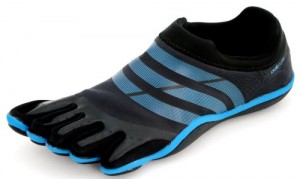 Top Class Action Lawsuits
Top Class Action Lawsuits
Subaru Flipping You One? Just when you though it might be safe to get back into your car…guess what? Not if you own a 2006 Subaru B9 Tribeca, apparently. A defective automobile class action lawsuit has been filed against Subaru of America Inc, alleging certain of its vehicles have a design defect that causes the hood to fly open when the affected vehicles are traveling at high speed. This can result in cracked windshields and danger to the drivers, in addition to diminishing the value of the vehicles.
Filed by Sharion Hadley, the Subaru complaint asserts that the National Highway Traffic Safety Administration (NHTSA) has 17 complaints about the hood of the 2006 Subaru B9 Tribeca unlocking and smashing the windshield while being driven. However, Hadley claims Subaru won’t do anything to fix the alleged defect.
“Despite longstanding knowledge of the defect through public complaints and internal testing, Subaru has failed to take responsibility for the problem, refusing to issue a recall and denying consumer requests to pay for necessary repairs occasioned by the defect,” the complaint states.
In the complaint, Hadley states that the hood of her vehicle flew open in May while she was driving at approximately 65 miles per hour, cracking her windshield and dislodging the rear view mirror. She goes on to state that she was unable to see the road because of the broken hood. She did manage to navigate the car to the side of the road, where she was helped by passing drivers.
According to the lawsuit, Hadley contacted Subaru about the accident, but the automaker refused to take responsibility for the alleged defect, wouldn’t compensate her for the cost of repairs and refused to even look at the vehicle.
The lawsuit contends that this incident is not isolated. While numerous consumers have complained online about the same alleged defect, the NHTSA has 17 complaints about the 2006 B9 Tribeca describing a similar experience to that which Hadley experienced.
“It is well known that car manufacturers, in general, and Subaru in particular, closely monitor NHTSA complaints, so there can be no doubt that Subaru has long known of this issue from the NHTSA website,” the lawsuit states.
The lawsuit accuses Subaru of actively concealing the alleged defect, and of failing to disclose that the alleged defect would diminish the value of the vehicle.
The lawsuit seeks certification of a national and Pennsylvania class of drivers who bought or leased the 2006 Subaru B9 Tribeca. She said at least 18,000 of the class vehicles were sold by Subaru.
The complaint asserts claims for violation of the New Jersey Consumer Fraud Act, breach of the Magnuson-Moss Warranty Act, breach of express warranty and common law fraud, among others.
The case is Hadley v. Subaru of America Inc., case number 1:15-cv-07210, in the U.S. District Court for the District of New Jersey.
It Really is Groundhog Day! Another data breach class action lawsuit has been filed this week—who’s counting anymore? This one, against the discount brokerage house Scottrade Inc, alleging the company failed to take adequate action to protect its customer’s data. Scottrade announced last week that between late 2013 and early 2014 approximately 4.6 million users had their personal information, possibly including their Social Security numbers, targeted in a data breach.
Filed by plaintiff Stephen Hine, the lawsuit states that Scottrade was negligent in failing to exercise reasonable security precautions and failing to comply with industry standards for storing confidential and private personal information. Further, the lawsuit alleges Scottrade’s email notification to customers affected by the breach was “woefully inadequate and vague,” given that their information might be sold on the black market or used in stock scams and other financial frauds.
Specifically, the lawsuit states, “Scottrade’s actions and/or omissions occurred despite prior warnings, including prior incursions of their network by third parties, who conducted fraudulent stock trades using Scottrade’s customer’s accounts, and even fines from government agencies concerning its system’s security procedures and oversight.” Seriously, how can anyone still be caught with their digital trouser down anymore?
The plaintiff contends that had Scottrade heeded warnings and taken necessary precautions, the data breach could have been prevented or, at a minimum, predicted it much sooner and reduced the harm to its customers.
In its announcement, Scottrade stated that those responsible for the attack appeared to have targeted names and mailing addresses, but it couldn’t rule out the possibility that email addresses and other “sensitive data” had been stolen.
The lawsuit goes on to allege that many of the customers affected won’t receive email notifications from Scottrade as they have changed email addresses or used a different email address. Furthermore, the emails sent are materially misleading and don’t fully disclose the scope of the threat to Scottrade’s customers, the lawsuit states.
“The database accessed, however, contains, among other things, Social Security numbers, email addresses and other ‘sensitive data’ (which is not defined in the email),” the complaint states. “It is highly unlikely that the hackers, having access to the above information, would only take the affected customer’s name and email address.”
According to the complaint, as a financial institution and U.S. Securities and Exchange Commission registered broker dealer, Scottrade had a “special duty” to exercise reasonable care to protect and secure the personal and financial information of its customers.
“Scottrade should have known to take precaution to secure its customers’ data, given its special duty, especially in light of the recent data breaches affecting numerous retailers and financial institutions, as well as from prior direct breaches of its secured networks,” the complaint states. You think ?
The case is Hine v. Scottrade Inc., case number 3:15-cv-02213, in the U.S. District Court for the Southern District of California.
Top Settlements
LinkedIn will pay to play… The social media platform has agreed to pony up $13 million in a settlement, that could end a Telephone Consumer protection Act (TCPA) class action lawsuit they’re facing over spamming its members.
Specifically, the LinkedIn lawsuit targeted LinkedIn’s ‘Add Connections’, a service that allowed members to import contacts from their email accounts. LinkedIn then sent those contacts an email, according to court documents.
While the court found in favor of the plaintiffs, stating that members did not consent to LinkedIn sending reminder emails to recipients of pending invitations, the company denies any wrongdoing.
Under the terms of the proposed settlement, people who signed up for LinkedIn between September 17, 2011, and October 31, 2014, can submit a claim, this includes people who are no longer members.
The payment amount for members of approved claims will depend upon how many claims are submitted but could range from $10 to $1,500. To learn more about the settlement, visit: http://www.addconnectionssettlement.com. Check it out!!
Ok—that’s it for this week folks—see you at the bar! And Happy Columbus Day!


